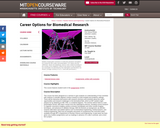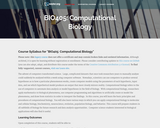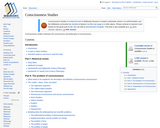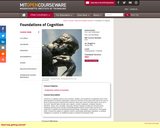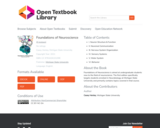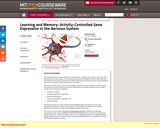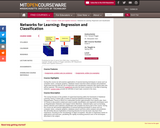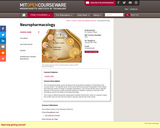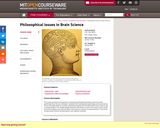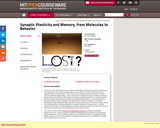Neuroscience for Pre-Clinical Students covers neuroenergetics, neurotransmitters, neuropeptides, and selected amino acid metabolism and degradation. This USMLE-aligned text is designed for a first-year undergraduate medical course and is meant to provide the essential biochemical information from these content areas in a concise format to enable students to engage in an active classroom. Hence, it does not cover neurophysiology and neuroanatomy; and clinical correlates and additional application of content are intended to be provided in the classroom experience. The text assumes that the students will have completed medical school prerequisites (including the MCAT) in which they will have been introduced to the most fundamental concepts of biology and chemistry that are essential to understand the content presented here. With its focus on high-yield concepts, this resource will assist the learner later in medical school and for exam preparation.
The 49-page text was created specifically for use by pre-clinical students at Virginia Tech Carilion School of Medicine and was based on faculty experience and peer review to guide development and hone important topics.
Available Formats
ISBN 978-1-949373-80-6 (PDF)
ISBN 978-1-949373-81-3 (ePub)
ISBN 978-1-949373-84-4 (print) https://www.amazon.com/Neuroscience-Pre-Clinical-Students-REN%C3%89E-LECLAIR
ISBN 978-1-949373-82-0 (Pressbooks) https://pressbooks.lib.vt.edu/neuroscience
Also available via LibreTexts: https://med.libretexts.org/@go/page/35685
How to Adopt this Book
Instructors reviewing, adopting, or adapting parts or the whole of the text are requested to register their interest at: https://bit.ly/interest-preclinical.
Instructors and subject matter experts interested in and sharing their original course materials relevant to pre-clinical education are requested to join the instructor portal at https://www.oercommons.org/groups/pre-clinical-resources/10133.
Features of this Book
1. Detailed learning objectives are provided at the beginning of each subsection;
2. High resolution, color contrasting figures illustrate concepts, relationships, and processes throughout;
3. Summary tables display detailed information;
4. End of chapter lists provide additional sources of information; and
5. Accessibility features including structured heads and alternative-text provide access for readers accessing the work via a screen-reader.
Table of Contents
1. Neuron and astrocyte metabolism
2. Neurotransmitters — ACh, glutamate, GABA, and glycine
3. Neuropeptides and unconventional neurotransmitters
4. Amino acid metabolism and specialized products
Suggested Citation
LeClair, Renée J., (2022). Neuroscience for Pre-Clinical Students, Blacksburg, VA: Virginia Tech Publishing. https://doi.org/10.21061/neuroscience. Licensed with CC BY NC-SA 4.0.
About the Author
Renée J. LeClair is an Associate Professor in the Department of Basic Science Education at the Virginia Tech Carilion School of Medicine, where her role is to engage activities that support the departmental mission of developing an integrated medical experience using evidence-based delivery grounded in the science of learning. She received a Ph.D. at Rice University and completed a postdoctoral fellowship at the Maine Medical Center Research Institute in vascular biology. She became involved in medical education, curricular renovation, and implementation of innovative teaching methods during her first faculty appointment, at the University of New England, College of Osteopathic Medicine. In 2013, she moved to a new medical school, University of South Carolina, School of Medicine, Greenville. The opportunities afforded by joining a new program and serving as the Chair of the Curriculum committee provided a blank slate for creative curricular development and close involvement with the accreditation process. During her tenure she developed and directed a team-taught student-centered undergraduate medical course that integrated the scientific and clinical sciences to assess all six-core competencies of medical education.
Accessibility Note
The University Libraries at Virginia Tech and Virginia Tech Publishing are committed to making its publications accessible in accordance with the Americans with Disabilities Act of 1990. The HTML (Pressbooks) and ePub versions of this book utilize header structures and include alternative text which allow for machine-readability.
Please report any errors at https://bit.ly/feedback-preclinical
